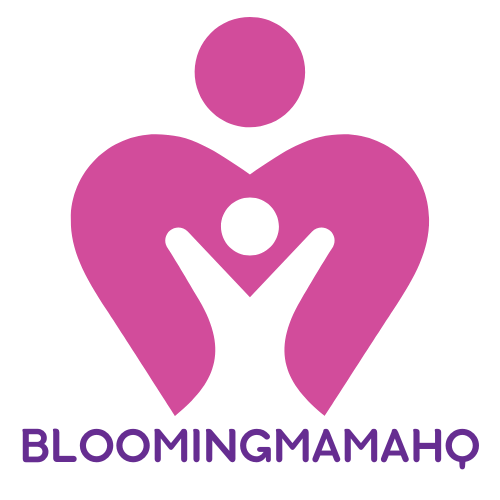Navigating college life can feel like trying to find a needle in a haystack, especially when it comes to discovering the right resources. Enter the college directory—a magical tool that transforms chaos into clarity. Imagine having a cheat sheet for everything from academic departments to campus clubs, all in one handy guide.
With a college directory, students can effortlessly connect with professors, explore extracurricular activities, and even track down the best late-night pizza spots. It’s like having a personal assistant who knows all the secrets of campus life, minus the awkward small talk. Whether you’re a fresh-faced freshman or a seasoned senior, this resource is your golden ticket to making the most of your college experience. So why not dive in and see what treasures await?
Table of Contents
ToggleUnderstanding College Directories
A college directory serves as an essential tool for students, providing a wealth of information to enhance their educational experience. This resource simplifies the process of connecting with faculty, engaging in campus activities, and locating nearby eateries.
Definition and Purpose
A college directory is an organized collection of contact information for students, faculty, and staff at an academic institution. Its primary purpose lies in facilitating communication and collaboration within the college community. By offering quick access to profiles and departmental listings, directories help students identify resources crucial for academic success. Many directories also feature information on campus events and support services, enabling students to navigate college life more effectively. Accessibility equals empowerment for students, creating an informed environment where they can thrive.
Types of College Directories
Easily identifiable, college directories come in various formats to meet diverse needs. Printed directories offer tangible resources that students can carry. Online directories, accessible through college websites, provide up-to-date information in real-time. Specialized directories focus on specific groups or departments, like academic programs or support services. Mobile apps also serve as convenient platforms for accessing directory information on the go. Each type addresses different preferences and facilitates students’ connections with important people and resources within their institution.
Benefits of Using a College Directory

A college directory offers numerous advantages to students navigating their academic journeys. This resource enhances accessibility to contacts and information crucial for a successful college experience.
Simplified College Search Process
Using a college directory simplifies the search for professors, classes, and resources. Students find it easier to locate faculty members by department or specialty. Accessing contact details allows them to reach out for clarifications or guidance. Additionally, directories assist in exploring extracurricular activities. Discovering clubs, organizations, or events becomes straightforward, encouraging student involvement. An organized layout prevents confusion, enabling quick connections within the campus community.
Access to Comprehensive Information
Comprehensive information is a hallmark of a quality college directory. It delivers contact details for students, faculty, and support services in one place. Students gain insight into departmental resources and campus events. Finding tutoring assistance or mental health services is efficient, directly impacting student success. Moreover, directories often include local dining options and housing resources. These elements create a well-rounded support network, ensuring students feel connected and informed throughout their college experience.
Popular College Directory Platforms
Numerous college directory platforms assist students in navigating their academic journeys. Each platform offers unique features tailored to enhance connectivity within the college community.
Overview of Top Websites
Several websites dominate the college directory landscape. College Board provides comprehensive listings of colleges and universities, including essential statistics and application information. Niche offers reviews and rankings of institutions, giving insights into student experiences. Campus Explorer focuses on matching students with suitable colleges based on interests and career goals. Unigo showcases student reviews and offers guides that help prospective students make informed decisions. These top sites serve as primary resources for students seeking information.
Features to Look For
When selecting a college directory platform, specific features play a crucial role. A user-friendly interface ensures easy navigation through listings and profiles. Search filters allow users to customize queries based on criteria like majors, location, and tuition fees. Profiles that include contact details enable direct communication with faculty and departments. Access to campus events and extracurricular activities enhances student involvement and engagement. Quality directories also provide up-to-date information on financial aid, scholarships, and support services. These elements significantly contribute to a successful college experience.
How to Effectively Use a College Directory
Utilizing a college directory efficiently enhances the overall college experience. Students can find resources and contacts necessary for their academic and social needs.
Tips for Maximizing Your Search
Focus on specific keywords when searching for contacts, courses, or activities. Narrow results through filters that allow students to refine their queries, making it easier to locate information. Utilize the directory’s organizational structure to navigate departments and services seamlessly. Bookmark frequently visited sections for quick access later. Engage with the available features, such as email links and contact forms, to facilitate direct communication with faculty and staff. Lastly, check for any updates regularly to access the latest information regarding events and resources.
Common Mistakes to Avoid
Expecting all information to be accurate can lead to disappointment. Relying solely on printed directories may result in outdated contact details. Overlooking the diversity of features offered can limit student engagement with the directory. Failing to explore all sections might prevent discovering valuable resources that cater to specific needs. Neglecting to reach out when in doubt can hinder access to help or support services. Lastly, sticking with one method of access, such as only online, might limit awareness of other available formats, like mobile apps or printed versions.
A college directory is an essential tool that significantly enhances the college experience. By providing easy access to vital information and resources it fosters connections among students faculty and staff. This organized collection of contacts and resources empowers students to navigate their academic and social lives with confidence.
Utilizing the right college directory platform can streamline the search process and encourage involvement in campus activities. With the right strategies students can fully leverage the directory’s features to ensure they remain informed and connected. Embracing this valuable resource can lead to a more enriching and successful college journey.



